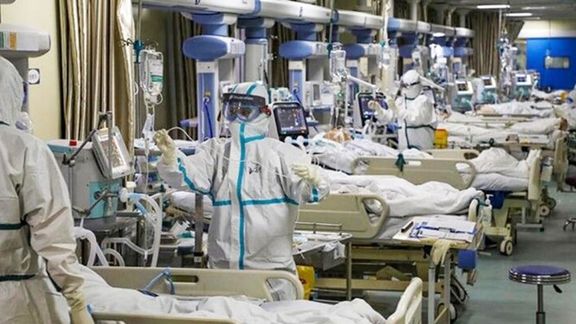Iran Developed Too Many Covid Vaccine Varieties, Mostly Unused

A health ministry official in Iran has criticized the development of too many homegrown Covid vaccine varieties, with most unused and expiring in storage.

A health ministry official in Iran has criticized the development of too many homegrown Covid vaccine varieties, with most unused and expiring in storage.
Speaking at a pharmaceutical seminar Monday, Dr Ramin Sarami, chairman of the health ministry's new medical technologies, said the number of programs to develop seven variants exceeded the total of all approved vaccines in the world. "These [projects] could have been limited to two vaccine development centers," he said.
Iran approved development of seven different vaccines – including CovIran Barekat (Barakat), Pasto-Covac, Sinagen, Razi Cov Pars, Fakhra, Noora, and SpikoGen -- when there were less than ten other major vaccine development projects underway worldwide and even fewer that received international approval. None of the Iranian varieties received international approval. Even neighboring Iraq does not admit travelers vaccinated by Iranian variants. 18 million doses are stored and are about to expire.
CovIran Barakat, the most widely promoted homegrown vaccine, was developed by Barakat Foundation, a charitable entity and business group controlled by Supreme Leader Ali Khamenei’s office, while the program for development of Noora and Fakhra were launched by the Revolutionary Guards and the ministry of defense. These entities had no prior record and experience in the field or the required infrastructures.
The expiration of stored homegrown vaccines is a symbolic representation of uncalculated decision-making and policies in the country, a commentary by political activist Ehsan Bodaghi in reformist Shargh newspaper said Tuesday. "There isn't even domestic demand for the vaccines that were supposed to have long queues of foreign buyers and become our pride," Bodaghi wrote.

Bodaghi said the authorities' uncalculated vaccine policies caused thousands of hours of work, months of delay in mass vaccination, and huge sums of government resources but more importantly, he argued, the loss of "public trust".
In January 2021, when the US-German Pfizer and Moderna and the British-made AstraZeneca were the only shots available, Supreme Leader Ali Khamenei banned importing US and British-made vaccines, arguing that the US and Britain could not be trusted. Khamenei told Iranians that he would personally wait until homegrown vaccines became available. He was reported to have received the CovIran Barekat vaccine in June.
Until June 2021, Iran's national vaccination plan had not made any significant progress, with only 1.2 percent of the 84 million population having been fully inoculated. Many countries in the region were well into mass vaccination at the time.
Hardliners, who in general extol self-sufficiency, claimed imported vaccines could be used as a biological weapon against Iranians and a high-ranking Revolutionary Guard official said foreign vaccines were meant to kill one-fifth of the world population.
Most Iranians did not trust the homegrown vaccines and waited until other vaccines, mainly Chinese and some AstraZeneca produced in countries other than Britain, were imported.
Imports did not speed up until August, when hardliner President Ebrahim Raisi took office and somehow China began delivering tens of millions of doses. By then, a severe wave of infections had already killed an additional 40,000 people from June to the end of August.
The controversy over Barekat’s vaccine development went beyond the alleged pre-payment of $1 billion to the company from government coffers. Officials of the foundation including Mohammad Mokhber, now President Ebrahim Raisi's vice-president, had repeatedly promised to deliver tens of millions of doses by the end of August. By September 2021, the company had only produced 14 million doses, according to one of its officials, and delivered only six million to the health ministry.